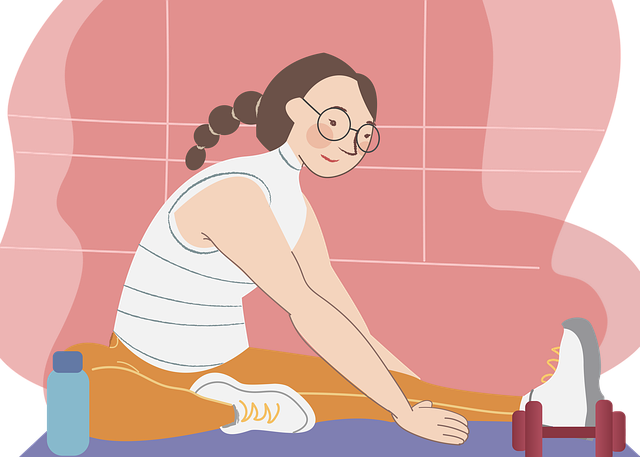Daily Archives: September 17, 2025
Daily Dental Habits That Improve Both Your Smile and Your Well-Being
 Most people think of dental care as a way to keep their teeth white and their breath fresh. However, the health of your mouth affects more than just your smile. It connects directly to your overall well-being. The same habits that prevent cavities and gum disease can lower your risk of other health issues, from heart disease to diabetes—advice often reinforced by the best dentist in Chicago. Here are the most effective daily habits that protect both your smile and your body.
Most people think of dental care as a way to keep their teeth white and their breath fresh. However, the health of your mouth affects more than just your smile. It connects directly to your overall well-being. The same habits that prevent cavities and gum disease can lower your risk of other health issues, from heart disease to diabetes—advice often reinforced by the best dentist in Chicago. Here are the most effective daily habits that protect both your smile and your body.
Brush With Purpose, Not Just Routine
Brushing twice a day is the foundation of oral health, but how you brush is just as important as how often. Many people rush through brushing or scrubbing too hard, which can harm enamel and gums.
- Move in small, gentle circles rather than back-and-forth scrubbing.
- Spend at least two minutes brushing, giving equal attention to all areas of your mouth.
This technique clears away plaque effectively without damaging your teeth. It also keeps your gums healthier, which helps reduce inflammation throughout the body.
Floss Daily to Reach What Brushing Can’t
Flossing is often treated as optional, but it shouldn’t be. Food and bacteria that lodge between teeth can’t be reached by a toothbrush alone. Left unchecked, they lead to gum disease, which is linked to increased risks of heart problems, stroke, and even certain infections.
Flossing once a day is usually enough. Slide the floss gently between teeth, curve it around each tooth in a “C” shape, and move it up and down. If traditional floss feels awkward, floss picks or water flossers can make it easier to build the habit.
Don’t Skip Your Tongue
Your tongue holds bacteria that contribute to bad breath and plaque buildup. A quick brush of your tongue—or using a tongue scraper—removes these layers. This simple step takes seconds but makes a noticeable difference in oral freshness and cleanliness.
Rinse Wisely
Mouthwash can play a supporting role, but not all rinses are the same. Alcohol-heavy formulas can dry out your mouth, allowing bacteria to thrive. A better option is an alcohol-free rinse with fluoride, which helps strengthen enamel and fight decay.
If you’d rather skip commercial rinses, swishing with water after meals can still help wash away food particles and neutralize acids.
Stay Hydrated
Water isn’t just good for your body—it’s essential for oral health. Hydration ensures a steady flow of saliva, your body’s built-in protection against cavities.
Make water your go-to drink during the day, and especially after coffee, soda, or wine, which can stain teeth and erode enamel.
Choose Foods That Support Oral Health
What you eat shows up in your mouth as much as on your waistline. Sugar helps bacteria cause cavities, and acidic foods can wear down your enamel. You don’t need to cut these foods completely, but balancing them with tooth-friendly choices makes a difference.
Good options include:
- Apples, carrots, and other crunchy produce naturally scrub your teeth during chewing.
- Yogurt, cheese, and leafy greens are rich in calcium, which supports stronger enamel.
- Nuts and seeds, which provide minerals and help balance pH in the mouth.
Limiting frequent snacking also gives your mouth time to recover between meals, reducing acid exposure.
Limit Tobacco and Excessive Alcohol
Smoking and chewing tobacco damage gums, stain teeth, and raise the risk of oral cancer. Alcohol dries out the mouth and, in excess, also increases cancer risk. Cutting back—or quitting—improves oral health quickly, and your overall health benefits too.
Prioritize Rest and Stress Management
Nighttime grinding, often caused by stress or fatigue, can damage teeth and put a strain on the jaw. In addition, chronic stress lowers immune defenses, reducing the gums’ ability to fight infection.
Relaxation habits, such as meditation, stretching, or a nightly wind-down routine, can protect both your mouth and your mind.
Don’t Forget Professional Care
Daily habits are powerful, but regular dental checkups still matter. Dentists can spot problems early—often before you notice pain or damage. Professional cleanings also remove tartar that brushing and flossing can’t. Aim for visits every six months, or more often if your dentist recommends it.
Small Habits, Big Payoffs
Healthy teeth and gums don’t just give you a confident smile. They lower your risk of infections, chronic disease, and even complications in other parts of the body. By brushing properly, flossing regularly, eating a balanced diet, and managing stress, you do more than care for your mouth—you support your overall well-being.
These habits may seem small, but when practiced consistently, they accumulate to provide lasting health benefits. A few minutes each day is all it takes to protect your smile and strengthen your body from the inside out.




